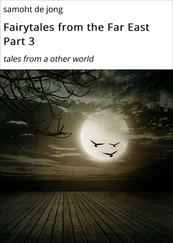Edmund Flagg - Flagg's The Far West, 1836-1837, part 2; and De Smet's Letters and Sketches, 1841-1842
Здесь есть возможность читать онлайн «Edmund Flagg - Flagg's The Far West, 1836-1837, part 2; and De Smet's Letters and Sketches, 1841-1842» — ознакомительный отрывок электронной книги совершенно бесплатно, а после прочтения отрывка купить полную версию. В некоторых случаях можно слушать аудио, скачать через торрент в формате fb2 и присутствует краткое содержание. Издательство: Иностранный паблик, Жанр: foreign_antique, foreign_prose, на английском языке. Описание произведения, (предисловие) а так же отзывы посетителей доступны на портале библиотеки ЛибКат.
- Название:Flagg's The Far West, 1836-1837, part 2; and De Smet's Letters and Sketches, 1841-1842
- Автор:
- Издательство:Иностранный паблик
- Жанр:
- Год:неизвестен
- ISBN:нет данных
- Рейтинг книги:4 / 5. Голосов: 1
-
Избранное:Добавить в избранное
- Отзывы:
-
Ваша оценка:
- 80
- 1
- 2
- 3
- 4
- 5
Flagg's The Far West, 1836-1837, part 2; and De Smet's Letters and Sketches, 1841-1842: краткое содержание, описание и аннотация
Предлагаем к чтению аннотацию, описание, краткое содержание или предисловие (зависит от того, что написал сам автор книги «Flagg's The Far West, 1836-1837, part 2; and De Smet's Letters and Sketches, 1841-1842»). Если вы не нашли необходимую информацию о книге — напишите в комментариях, мы постараемся отыскать её.
Flagg's The Far West, 1836-1837, part 2; and De Smet's Letters and Sketches, 1841-1842 — читать онлайн ознакомительный отрывок
Ниже представлен текст книги, разбитый по страницам. Система сохранения места последней прочитанной страницы, позволяет с удобством читать онлайн бесплатно книгу «Flagg's The Far West, 1836-1837, part 2; and De Smet's Letters and Sketches, 1841-1842», без необходимости каждый раз заново искать на чём Вы остановились. Поставьте закладку, и сможете в любой момент перейти на страницу, на которой закончили чтение.
Интервал:
Закладка:
The proceedings of our national government towards these ancient villages have been characterized by generosity, whatever may be said of the conduct of individuals. In 1788, an extensive tract lying along the Mississippi was by act of Congress granted to the French inhabitants east of that river; and to those of Kaskaskia was secured for a common field twenty thousand acres. It is under direction of the trustees of the town by provision of the state legislature. 24
Unlike the policy of all other Europeans who have planted themselves upon the Western continent, that of the French emigrants towards the aborigines, with the single exception of the extermination of the Natchez in the South, has invariably been conciliatory, peaceable, and friendly. 25This has been the effect rather of debasing themselves than of elevating the natives. Surrounded by everything which could fascinate the eye or delight the fancy, we find these inoffensive foreigners, therefore, unlike the English settlers along the Atlantic and in the elder Western states, at peace with all their savage neighbours; unambitious, contented, and happy, increasing and flourishing; and in a few years, they tell us, Kaskaskia, "the terrestrial paradise," numbered a population of eight thousand souls! 26Blessed with a soil of boundless fertility, and prolific in all Nature's luxurious stores to a degree of which less-favoured climes can form no conception: subsisting solely by culture of the little homesteads around their own thresholds, by hunting the wild denizens of their noble forests, or angling upon the calm bosom of their beautiful stream: simple-hearted and peaceful, almost without the terms of law, gently ruled by the restraints of a religion they venerated and a priesthood they loved: without commerce, the arts, or the elegances of life; a thousand miles from a community of civilized men; from year to year they went on, and from generation to generation they flourished, until, in that of our own age and our own day, they are found still treading in the steps in which their fathers trod! So long as the peaceful French villager retained the beautiful land of his adoption in undisputed possession, all was flourishing and prosperous. A little more than half a century from its origin, Kaskaskia was capital of Illinois; and on the visit of Charlevoix in 1721, a monastery and Jesuit college was in successful operation, the ruins of the edifice remaining extant even at the present day. 27This institution was successful in converting a number of the aborigines to its peculiar tenets, and at one period is said to have "embraced twenty-five hundred catechumens!!" A most preposterous assertion, most assuredly.
It was in the early part of this century that the scheme of that celebrated projector, John Law, of Edinburgh, on the strength of which he elevated himself to the dignity of Comptroller-general of the Finance of France, was first set on foot with reference to the Valley of the Mississippi. The design, so far as it is now known, was to establish a bank, an East India, and a Mississippi Company, from the anticipated enormous revenue of which was to be liquidated the national debt of France. 28The territory of Louisiana had already acquired a reputation abroad for the boundlessness of the wealth and fertility of its soil; and, to foster the delusion of Law's scheme, descriptions of this beautiful region, tinted with all the rainbow hues of romance, were scattered throughout Europe, until the distant wilderness of les Illinois became the paradise of the slumberer's vision. "The Illinois" was the fairyland of fancy realized. A few years, the vast fabric of fictitious credit crumbled, almost annihilating the finance of France, and burying thousands of families in its ruins. Law was exiled and retired to Venice, where in poverty he soon died. It is a coincidence not a little remarkable, that the same year, 1720, witnessed the same desperate game enacted by the South Sea directors in England. But the attention of France was now directed towards her remote colony in North America; and notwithstanding the failure of Law's scheme, old Kaskaskia continued to flourish beyond all compare. Other villages sprang into existence around; a lucrative fur-trade was carried on by the Canadian voyageurs, and agriculture became the peculiar province of the French villager. The extent and luxuriance of the agriculture at this period may be gathered from the fact, that in the single year 1746, eight hundred thousand weight of flour was sent to New Orleans from these settlements. 29At this period there was not a solitary village west of the Mississippi, though the lead-mines then known and worked were resorted to by traders. 30Twenty years after the failure of Law's scheme, the French government formed the design, almost as chimerical, of securing her immense possessions in the Mississippi Valley by a continuous line of military posts, connecting them with Canada; and vast were the sums of money expended in the undertaking.
A century, and the whole region was ceded to England, thence to our own government in 1783, and now old Kaskaskia is but the wreck of its former prosperity. It makes one almost sad to wander about among these ruinous, deserted habitations, venerable with departed years, and reflect that once they were thronged with population, the seat of hospitality, and the home of kindly feeling. The quiet villagers have been not a little annoyed by the steady and rapid influx of immigration on every side of them, dissimilar in customs, language, religion, and temperament, while the bustling enterprise has fretted and displeased them. Long accustomed, also, to the arbitrary but parental authority of their military commandants and priesthood, they deemed the introduction of the common law among them exceedingly burdensome, and the duties of a citizen of a republic, of which we are so proud, intolerable drudgery. Many, therefore, of the wealthy and respectable, on cession of their territory to our government, removed to Louisiana, where civil law yet bears sway; others crossed the river and established Ste. Genevieve and St. Louis; 31while the foreigners returning to the lands from which they had emigrated, few but natives of the country remained behind. The ordinance of 1787, 32prohibiting involuntary servitude in the region then called the Northwestern Territory, induced many who were desirous of preserving their blacks to remove to the new villages west of the Mississippi, then under Spanish rule. From these and a variety of similar causes, this peaceful, kind-hearted people have within the last thirty years been more than once disturbed in the dwellings of their fathers.
Kaskaskia, Ill.
XXXVI
"If my readers should at any time remark that I am particularly dull, they may rest assured there is a design under it." — British Essayist.
"Let not ambition mock their useful toil,
Their homely joys, and destiny obscure;
Nor grandeur hear with a disdainful smile
The short and simple annals of the poor."
Few things are more difficult, and, consequently, more rarely met, than correct portraiture of character, whether of the individual or of a community. It is easy enough, indeed, to trace out the prominent outlines in the picture; and with a degree of accuracy which shall render it easily recognised, while yet the more delicate shading and lighting is false; just as the artist may have transferred every feature in exact form, size, and proportion to his canvass, while the expression thrown over the whole may be incorrect. This has more than once been the case in descriptions hastily drawn of that singular being, the French villager of the Mississippi . One distinguished writer has given an absolute caricature of the race. My own design has been, therefore, merely to throw before the reader those characteristic traits which not even the most careless observer could have failed to detect.
Читать дальшеИнтервал:
Закладка:
Похожие книги на «Flagg's The Far West, 1836-1837, part 2; and De Smet's Letters and Sketches, 1841-1842»
Представляем Вашему вниманию похожие книги на «Flagg's The Far West, 1836-1837, part 2; and De Smet's Letters and Sketches, 1841-1842» списком для выбора. Мы отобрали схожую по названию и смыслу литературу в надежде предоставить читателям больше вариантов отыскать новые, интересные, ещё непрочитанные произведения.
Обсуждение, отзывы о книге «Flagg's The Far West, 1836-1837, part 2; and De Smet's Letters and Sketches, 1841-1842» и просто собственные мнения читателей. Оставьте ваши комментарии, напишите, что Вы думаете о произведении, его смысле или главных героях. Укажите что конкретно понравилось, а что нет, и почему Вы так считаете.












